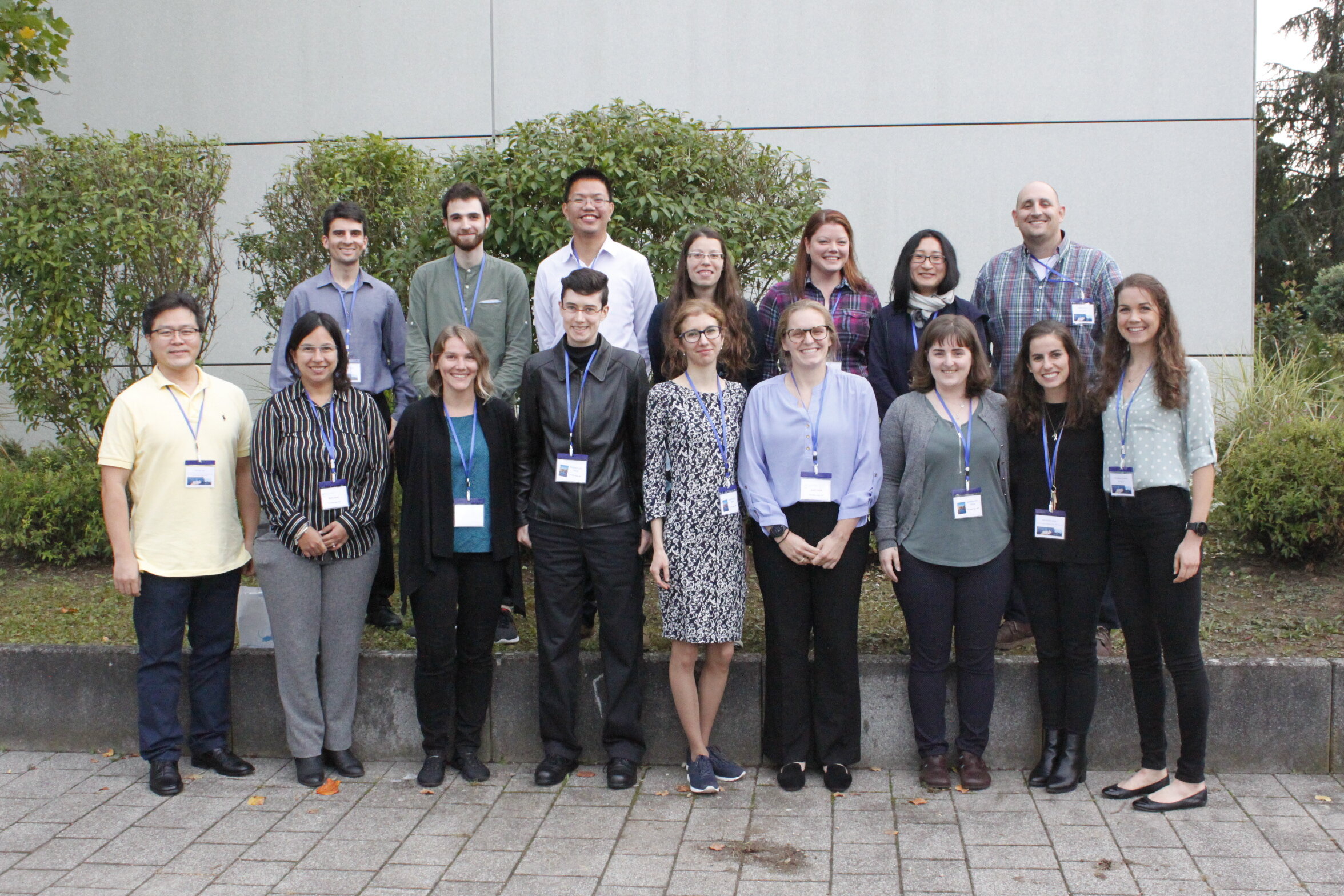Presenters from the trainee symposium, IMGC Strasbourg 2019. Photo credit: Xavier Montagutelli
Participants of 38th IMGC at City Chambers, Glasgow, UK, 2025. Photo Credit: Xavier Montagutelli
About Us
The International Mammalian Genome Society is a global community of scientists that fosters innovation, training, and collaboration in mammalian genetics.
The extensive rodent and other mammalian genetic resources and the identification of evolutionary conserved linkage relationships between mammalian model organisms and humans offer significant opportunities for understanding gene function in relation to human development and disease. The role of rodents in biomedical and genetic research continues to expand as the benefits of comparative sequence analyses between the human, mouse, and rat genomes and large scale mutagenesis programs are obtained. The roles of other mammalian organisms are also expanding as their genomes are sequenced and their importance as models for human disease becomes evident.
HISTORY
The society was formed in 1991 from informal discussions within the mouse genetics scientific community. It had 48 founding members, including Verne Chapman, Mary Lyon, Gail R. Martin, Eric Lander, Tsui Lap-chee and Shirley M. Tilghman. The society has served as an organizing body for a number of initiatives in mouse genetics. It coordinated the formation of the International Mouse Mutagenesis Consortium, an effort to assign a function to every gene in the mammalian genome, oversaw activities of chromosome committees and advised on biological database developments. Membership of the International Mammalian Genome Society is open to all people interested in mammalian genetics. Members pay yearly dues, for which they receive voting rights and access to Mammalian Genome. The society is governed by a secretariat of three presidents (vice, current and past-president) and elected officers. Each officer is elected by a ballot of members for a period of three years; the presidents serve for a consecutive six-year period, two years in each position.
The IMGS holds an annual meeting, the International Mouse Genome Conference (IMGC), that is attended by scientists from around the world. Prior to the formation of the society the mouse genetics community held a number of annual workshops, which the society adopted at the 4th workshop in Lunteren, Netherlands. The location for the meeting has rotated between Europe, the USA, and Japan. Recent IMGCs have hosted satellite events, including student symposia, bioinformatic workshops and mentoring meals. In addition to the scientific program, the IMGC hosts the annual business meeting of the society, the annual secretariat meeting and often includes cultural or social events characteristic of host city or country.
IMGS Secretariat at banquet in Yokohama, Japan, 2015
Photo courtesy of Elena de la Casa Esperon
Old San Juan, IMGC Puerto Rico 2018. Photo Credit: Klaus Schughart




